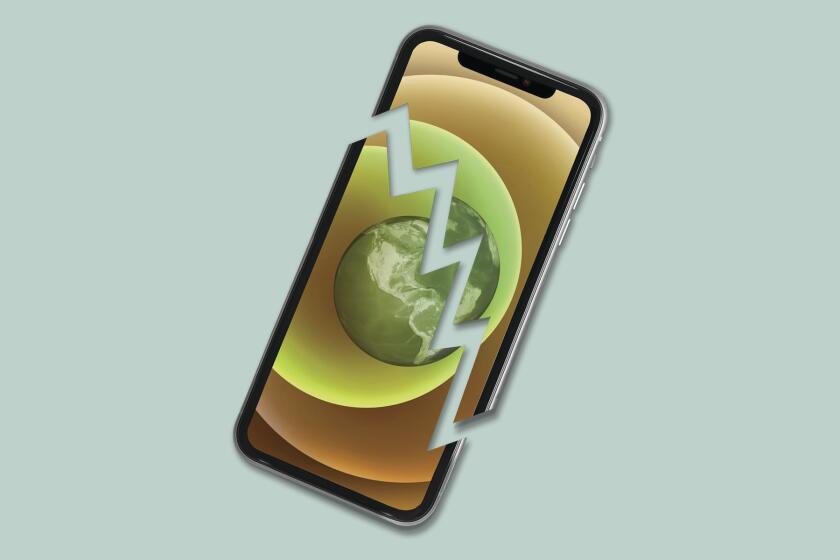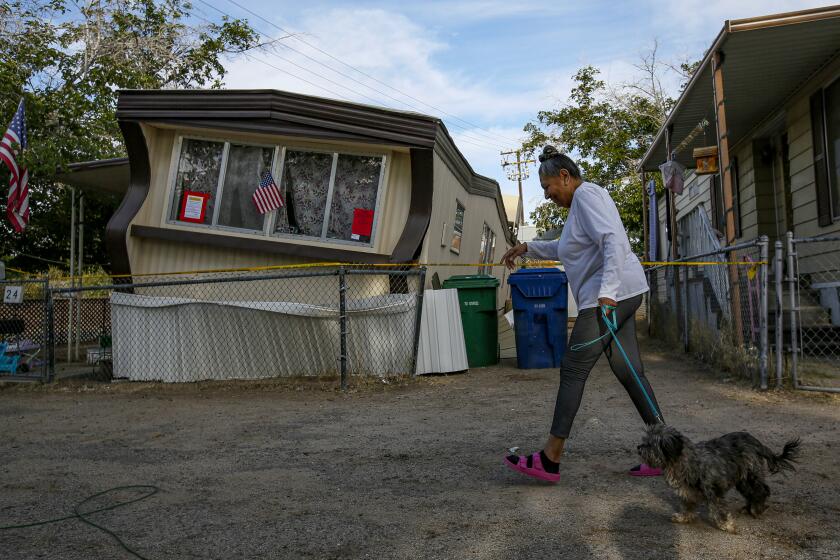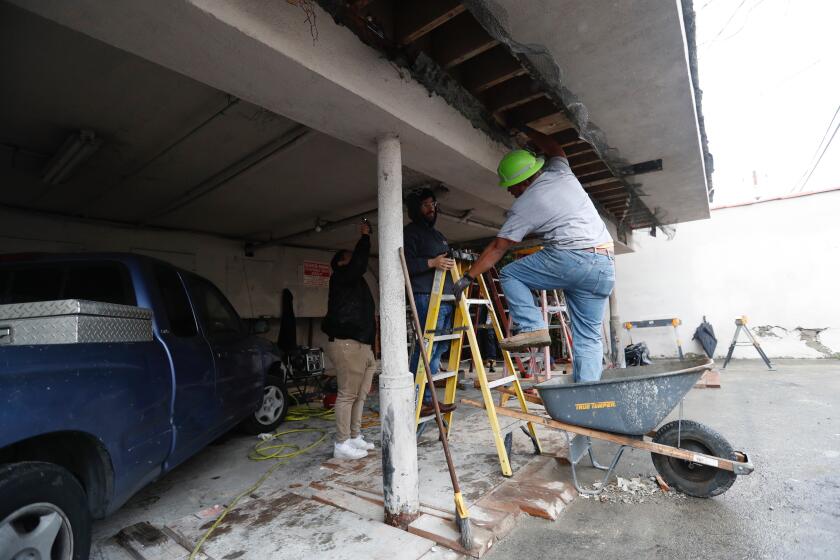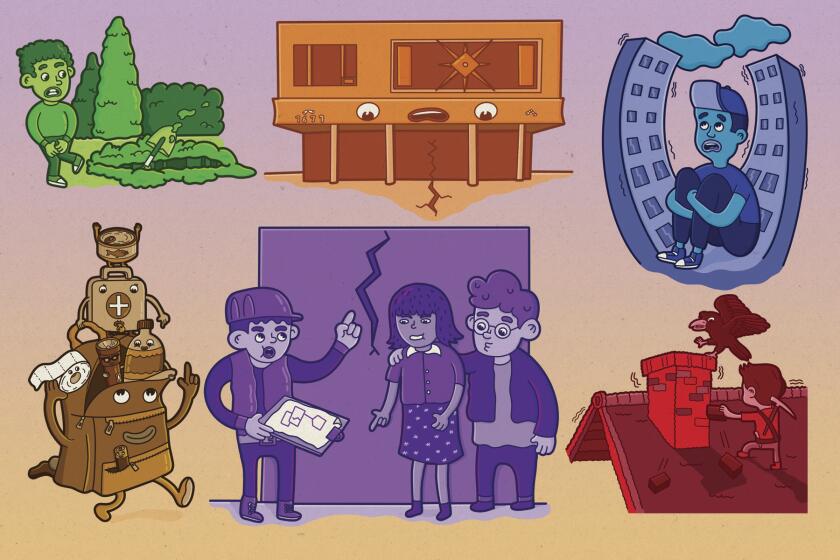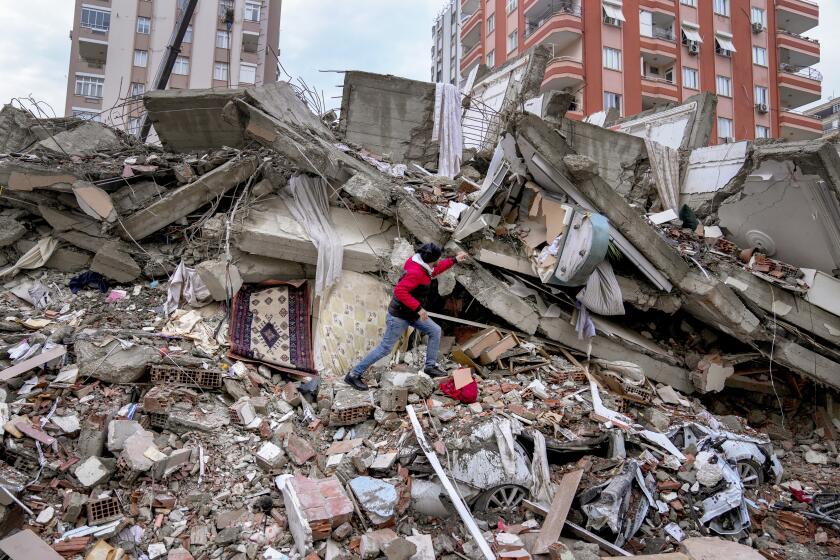An earthquake the size of Turkey’s would bring devastation, death to Southern California
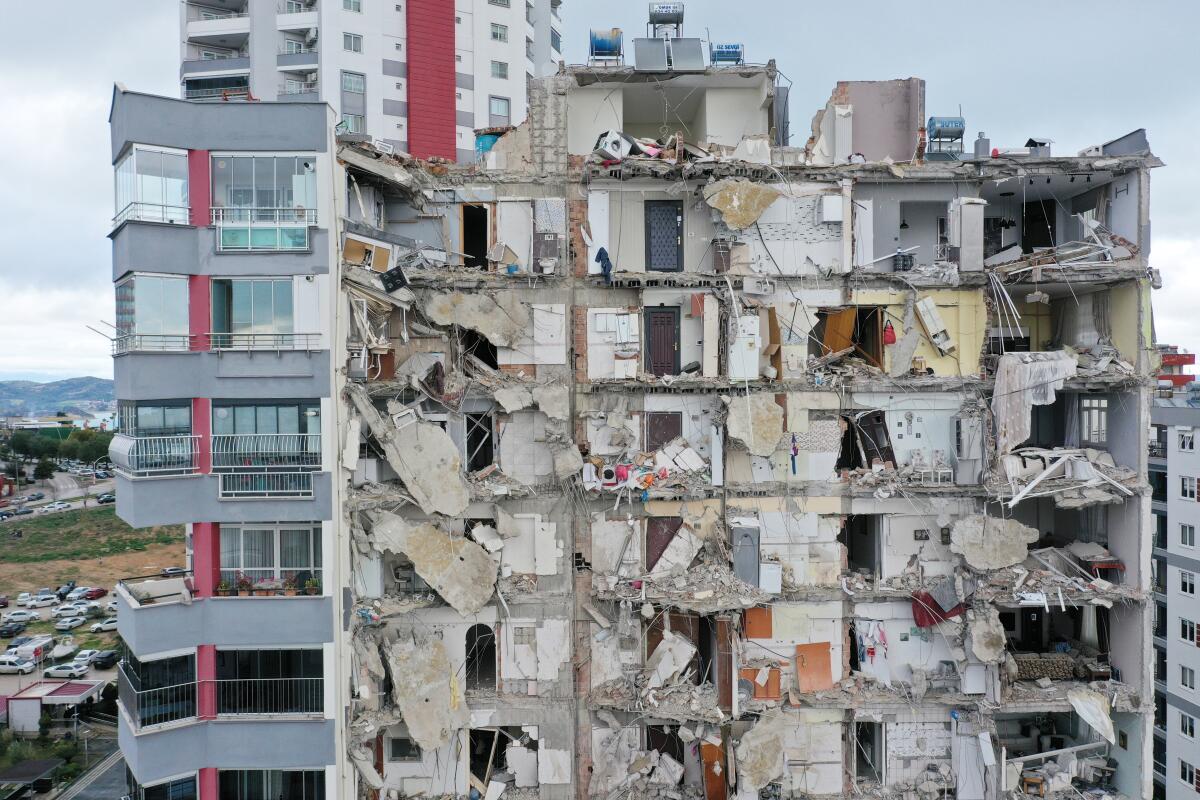
- Share via
The destruction from the magnitude 7.8 earthquake that struck Turkey on Monday is so widespread and intense it is hard to fathom.
But California has experienced quakes of that magnitude and greater — and scientists have spent years developing simulations of how “The Big One” would play out in the Golden State.
Here is a closer look at the risks from the pages of The Times:
Disruptions from a major quake would be serious and long-lasting. Here’s what could happen in Southern California if a large earthquake struck on the San Andreas fault.
Projecting a huge Southern California quake
A quake as strong as magnitude 8.2 is possible on the southern San Andreas fault and would bring disaster to all of Southern California simultaneously, with the fault rupturing from near the Mexican border to Monterey County.
Such an earthquake would cause widespread damage from Palm Springs to San Luis Obispo — and everything in between, experts say.
In 2008, the U.S. Geological Survey and a host of other state government agencies and academics published a study called the ShakeOut Scenario that told the story of what could happen if a magnitude 7.8 earthquake returned to Southern California.
You may have heard sirens or gotten alerts as part of the Great California ShakeOut. The event is a good reminder to be prepared for an earthquake.
A magnitude 7.8 earthquake would be “so powerful that it causes widespread damage and consequently affects lives and livelihoods of all southern Californians. A catastrophe is a disaster that runs amok when a society is not prepared for the amount of disruption that occurs,” the report said.
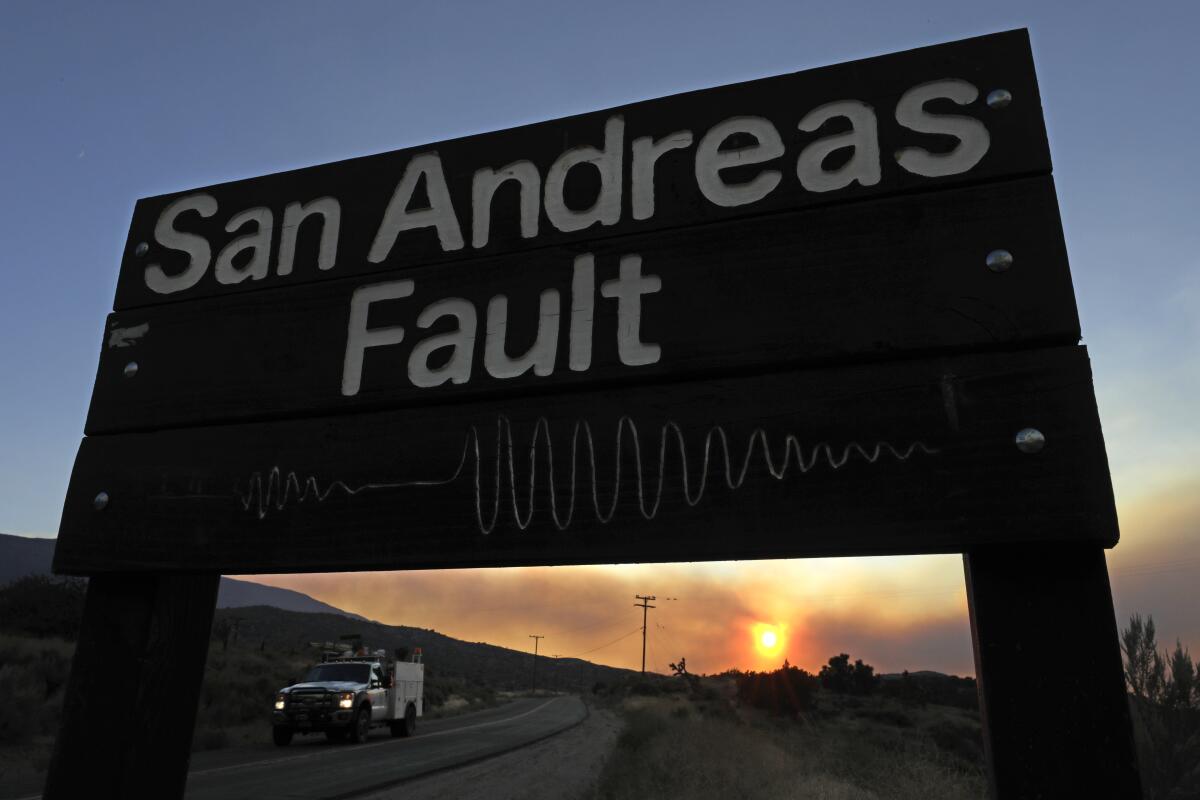
Among the impacts, the report found:
- The death toll could be among the worst for a natural disaster in U.S. history: nearly 1,800.
- Los Angeles County could suffer the highest death toll, more than 1,000, followed by Orange County, with more than 350 dead.
- Nearly 50,000 could be injured.
- Main freeways to Las Vegas and Phoenix that cross the San Andreas fault would be destroyed.
- Some 500,000 to 1 million people could be displaced from their homes.
- Southern California could be isolated for some time, with the region surrounded by mountains and earthquake faults.
- Major utilities such as gas, power and cell service would likely be severely compromised.
The milestone comes seven years after the City Council passed the nation’s most sweeping earthquake safety legislation, requiring that more than 14,000 buildings be retrofitted.
What history tells us
The last California seismic event that reached magnitude 7.8 was the great San Francisco earthquake of 1906. In Southern California, a magnitude 7.8 quake struck in 1857. (The magnitude 6.7 Northridge earthquake, which occurred on a much smaller fault in the San Fernando Valley, was 45 times weaker than the so-called Ft. Tejon quake.)
The last two big earthquakes to strike Los Angeles — the 1971 Sylmar quake and 1994 Northridge quake — caused destruction and loss of life. But the worst damage was concentrated in relatively small areas and did not halt daily life across all of Southern California.
Experts have long warned that a significantly larger quake will eventually strike and that the toll will be far greater.
When the Big One hits, will Californians be ready for a lack of modern communication connections? Extended periods without essential utilities such as water and gas? Damage to homes? The mental health effects that often follow disaster?
Risk in Northern California
The San Andreas fault produced the epic 1906 quake that destroyed San Francisco.
But the Hayward fault in the East Bay also poses a major threat, experts say.
A landmark report by the U.S. Geological Survey in 2018 estimates that at least 800 people could be killed and 18,000 more injured in a magnitude 7 earthquake on the Hayward fault centered below Oakland.
Hundreds more could die from fire following a quake along the 52-mile fault. More than 400 fires could ignite, burning the equivalent of 52,000 single-family homes, and a lack of water for firefighters caused by old pipes shattering underground could make matters worse, researchers said.
The Hayward fault is so dangerous because it runs through some of the most heavily populated parts of the Bay Area, spanning the length of the East Bay from the San Pablo Bay through Berkeley, Oakland, Hayward, Fremont and into Milpitas.
For all the devastation of the 1906 San Francisco earthquake, it was centered off the coast in the Pacific Ocean.
Earthquake early warning systems have been part of life in metropolises like Tokyo, Taipei and Mexico City for years.
Building strength
In the Turkey quake, thousands of buildings were reported to have collapsed in a wide area extending from the Syrian cities of Aleppo and Hama to Turkey’s Diyarbakir, more than 200 miles to the northeast. A hospital collapsed in the Mediterranean coastal city of Iskanderoun, according to the Associated Press.
Building standards in California are significantly stronger. Images in Turkey and Syria show countless toppled buildings.
The magnitude of an earthquake isn’t enough to determine how much death and destruction it will cause. Location, time of day, building codes and other factors make a big difference.
California has been working to improve seismic safety rules for vulnerable buildings.
The ShakeOut scenario focused on unretrofitted brick buildings, brittle concrete buildings and so-called soft-story apartment buildings. Some cities including Los Angeles and San Francisco have been pushing retrofits for these types of structures.
Soft-story apartments: Last year, L.A. announced a major milestone: More than 8,000 seismically vulnerable buildings have been retrofitted across the city at an estimated cost of $1.3 billion. The improvements mark the biggest advance in seismic upgrades in decades but still leave thousands of buildings vulnerable to damage or even collapse in a catastrophic temblor.
Cities such as Santa Monica, West Hollywood, Culver City, Beverly Hills and Pasadena now have laws requiring soft-story buildings to be retrofitted. In Northern California, San Francisco, Berkeley and Oakland have such laws on the books as well.
In the 1994 Northridge earthquake, about 200 soft-story buildings collapsed, including one apartment building in which 16 people died.
Brittle concrete: L.A. has made slow progress on getting brittle concrete buildings retrofitted. City data show that only two of L.A.’s 1,337 brittle concrete buildings have received certificates of compliance showing they meet the standards of the retrofit law.
Owners of concrete buildings were given much longer to get them retrofitted — 25 years, compared with the seven years that owners of soft-story buildings had to upgrade. Some owners of soft-story buildings began receiving orders to retrofit in 2016, meaning they still have some time before the seven-year deadline passes. Other owners began getting orders in 2017.
Concrete buildings can be especially deadly because they are so massive. The collapse of two concrete buildings in a quake in New Zealand in 2011 resulted in 133 deaths.
Brick buildings: Some cities like Los Angeles long ago required retrofits of un-reinforced brick buildings.
But a Times analysis in 2018 found that there were as many as 640 unreinforced masonry buildings in more than a dozen Inland Empire cities, including Riverside, Pomona and San Bernardino, that have been marked as dangerous but remained unretrofitted despite decades of warnings.
Little has been done to get those buildings retrofitted, despite the fact that the San Andreas fault runs through the region.
More to Read
Sign up for Essential California
The most important California stories and recommendations in your inbox every morning.
You may occasionally receive promotional content from the Los Angeles Times.
